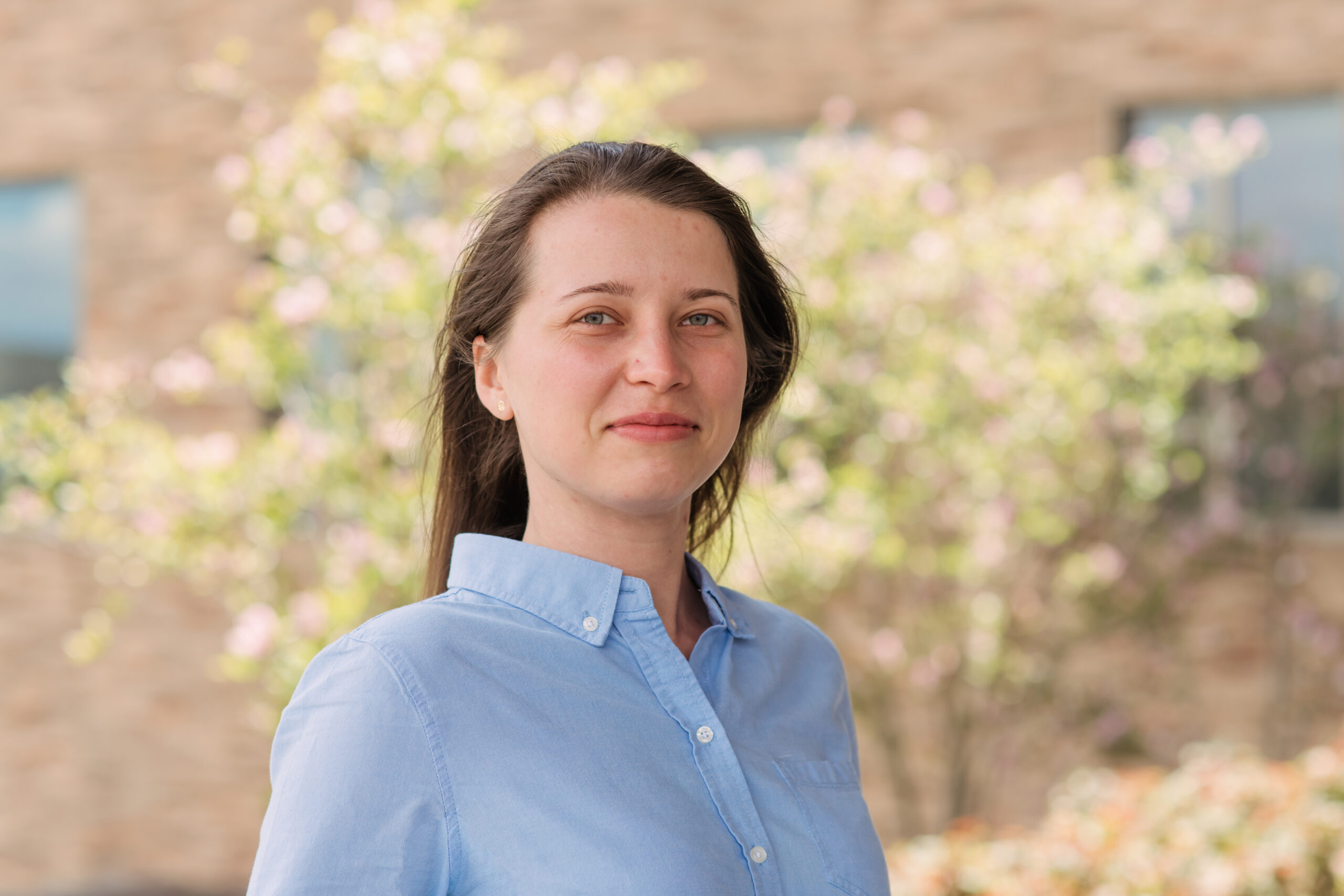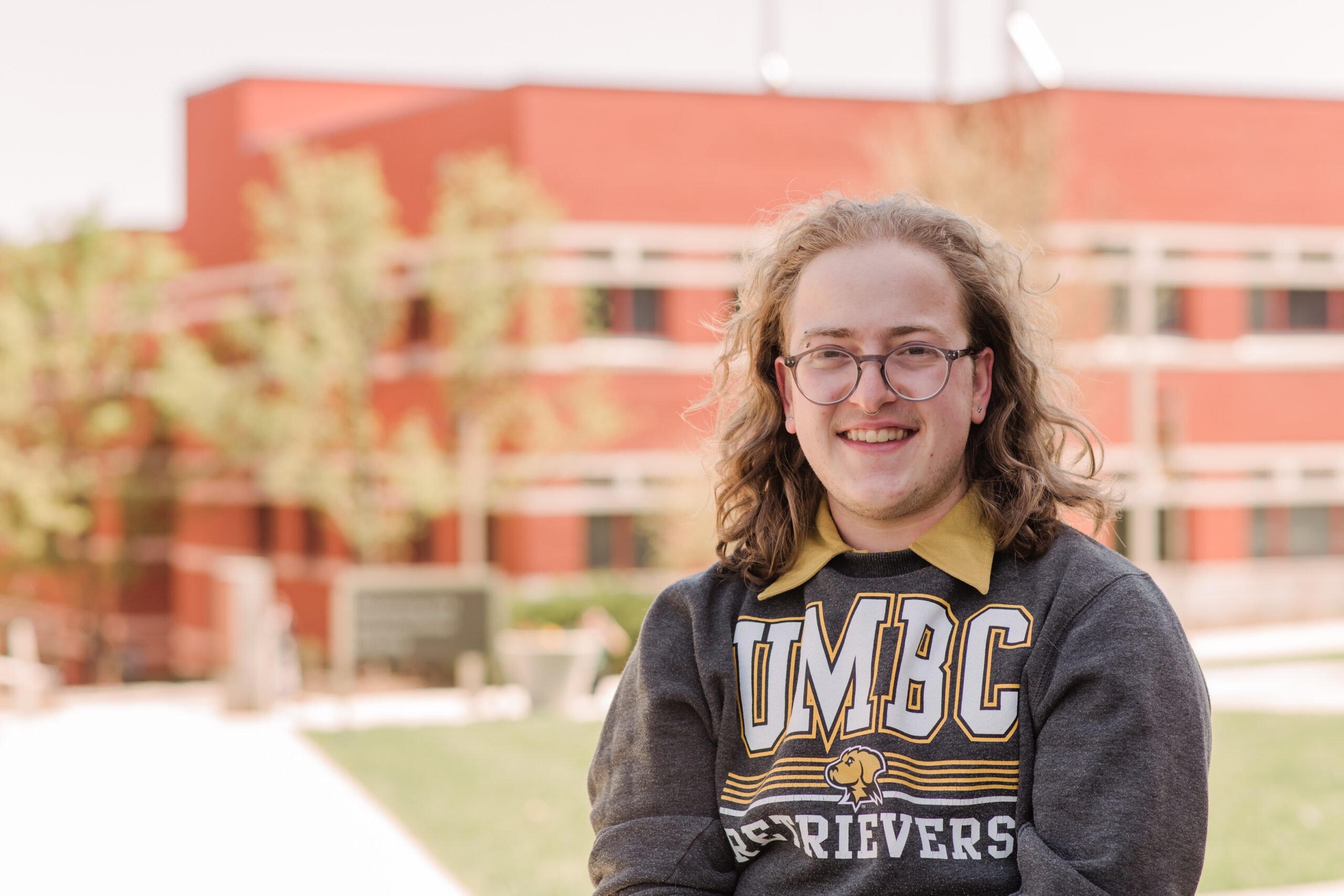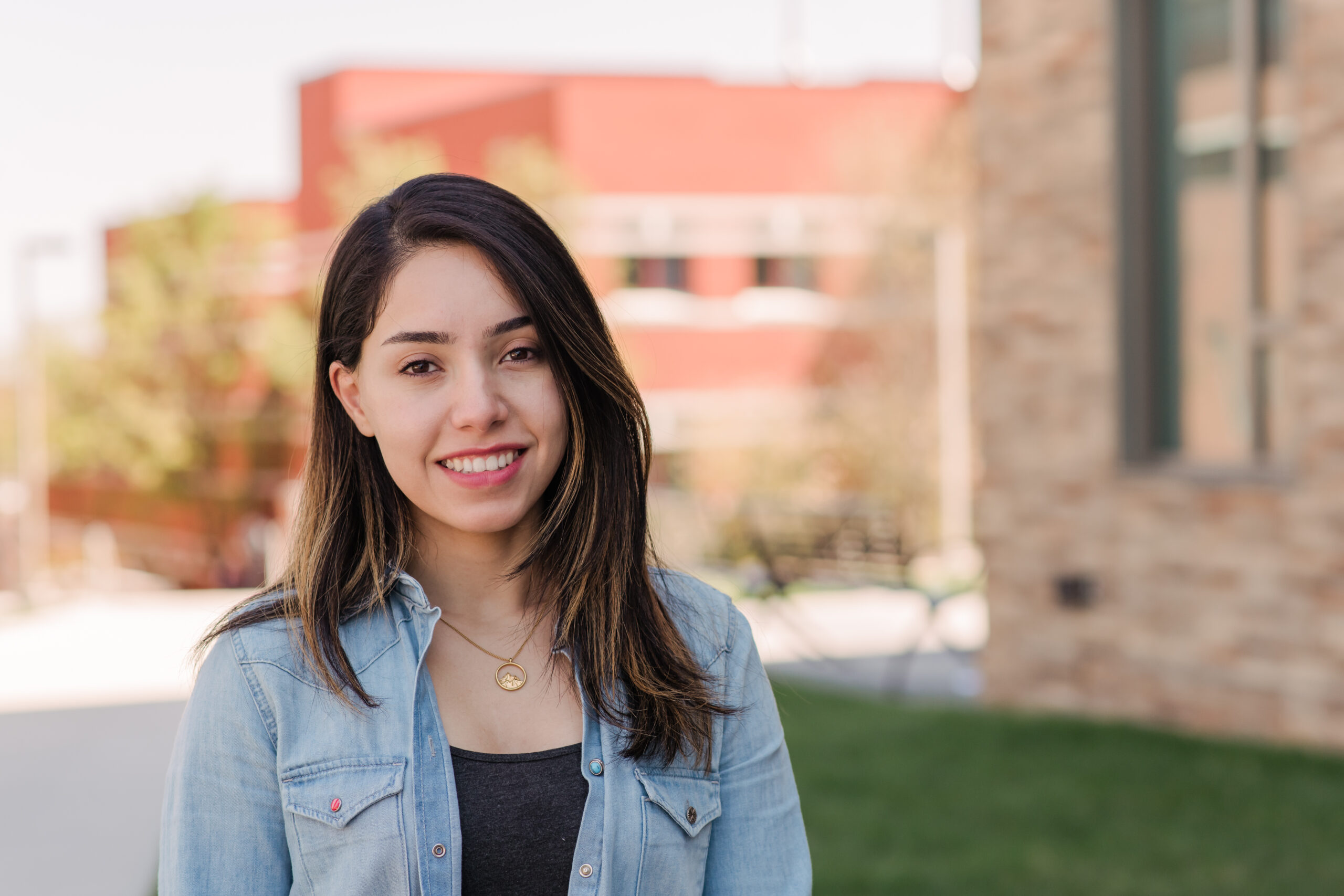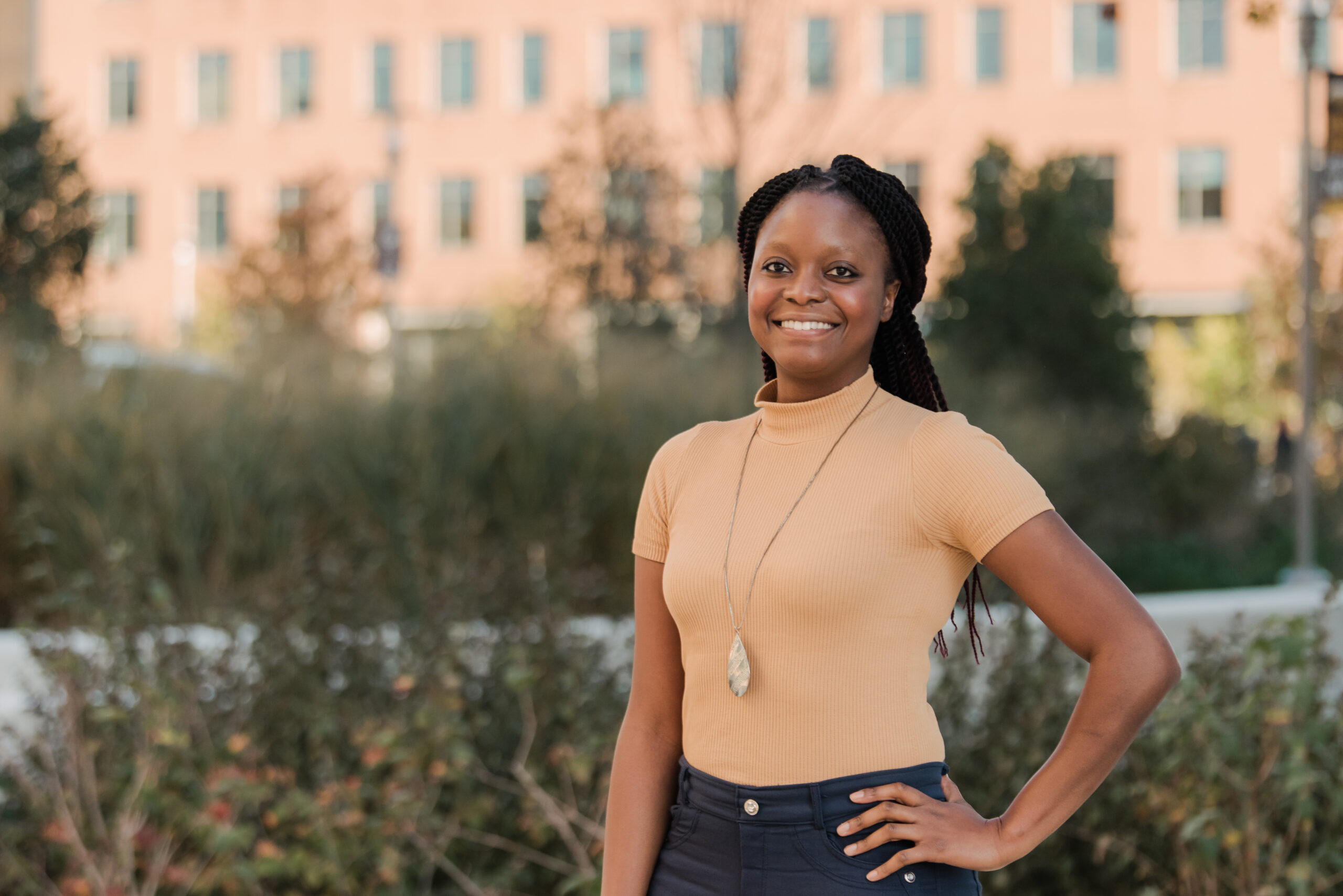New UMBC grads share how intercultural experiences have shaped their journeys
By Karen Stysley
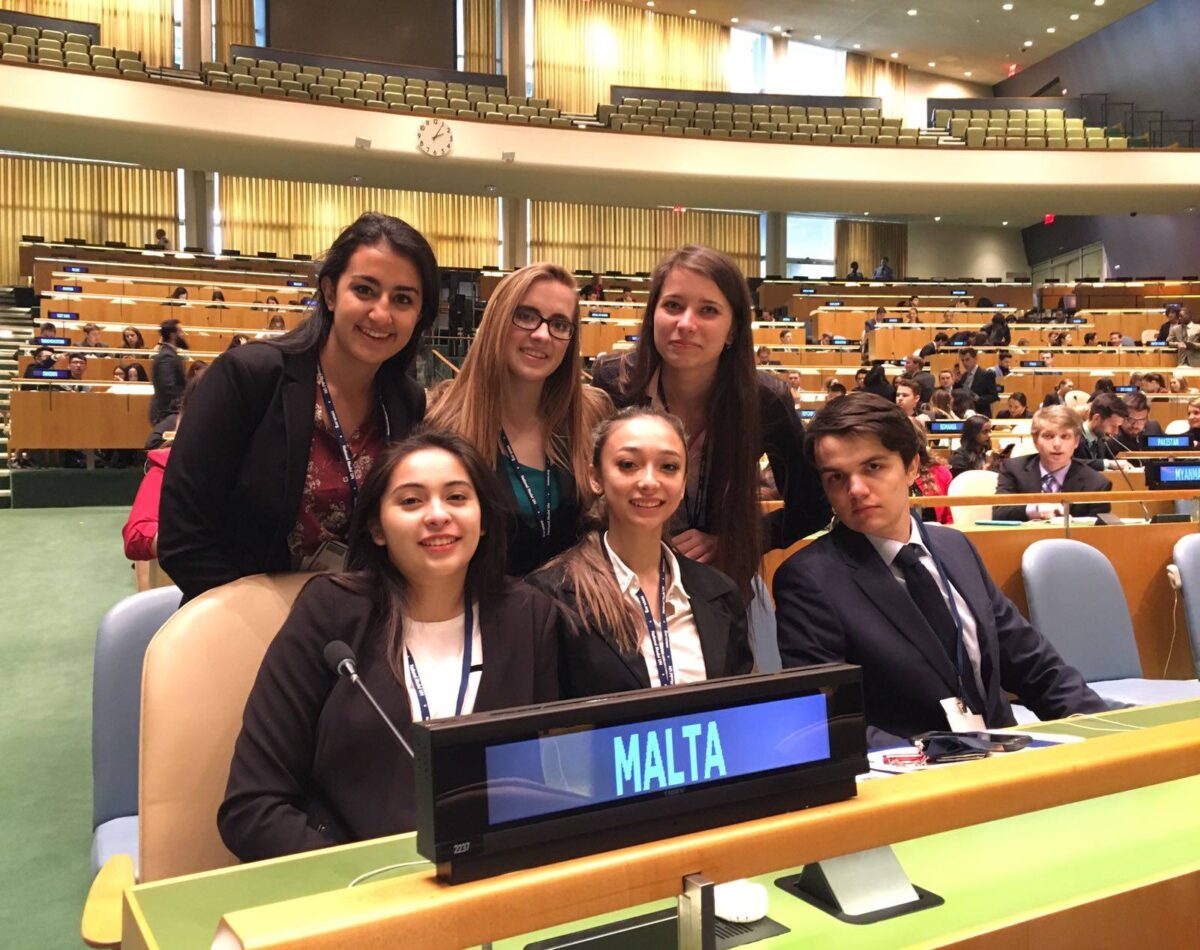
As Kateryna Yakusheva ’22, global studies, spoke to fellow UMBC students about Ukraine this past March, it was hard to deal with all the emotions of the war in her homeland. Nevertheless, it was important, she says. “We need to speak to as many people as we can so they understand what people in another world are going through,” she notes, since “it’s hard to relate when there is something like this going on very far from you and maybe not directly involved with your family.”
This year’s UMBC graduates demonstrate how cultivating those intercultural relationships is a key part of the UMBC experience, whether it’s in the classroom, with friends, or through work, like Yakusheva’s job at the UMBC Bookstore. She says she believes that even students in other majors should take Introduction to Global Studies because it “definitely helps you open your mind and broaden your perspective on the world.”
Another approach is education abroad, where students get to have an up-close, personal look at life in a different country. While Caleb Ruck ’22, modern languages and linguistics, was in Argentina, he saw a wonder of the world, improved his Spanish, and attended a pride festival. But what really sticks with him is a newfound confidence. He says that he learned, “I can do things that are out of the box and make me nervous…I can embarrass myself and then get over it.”
Global Ambassadors
Some UMBC students come to the U.S. from other countries for the same reason. Nastaran Azar ’22, biological sciences, came to UMBC from Iran because “I enjoyed the culture and it was a really diverse community.” Even so, she had to navigate the occasional instance culture clash. For example, saying something that might be considered respect for someone’s privacy or time in the U.S. can be considered rude elsewhere, she said.
Students new to the U.S. also have to contend with complications like getting a visa as well as the language barrier, says Tchuissi Mbu Nyamsi ’22, data science, who is originally from France and has also traveled the world.
To help other international students through that process, both Azar and Mbu Nyamsi joined UMBC’s Global Ambassadors program. One of Azar’s favorite memories from UMBC was helping the new international students when they first arrived. “All of them were stressed and we were saying, ‘you will be fine.’ I really enjoyed that,” she said.
Valuable skills
Often, students with such intercultural experience aren’t just fine – they excel, thanks to the skills and knowledge they’ve gained. “Learning multiple languages is a big strength and it allows me to adapt myself to any cultures,” Mbu Nyamsi says. She plans to use this skill at her job as a consultant with a business advisory firm.
Yakusheva also has found intercultural experiences to be a bonus during interviews for internships and jobs. Companies “understand that when you have people from different backgrounds in the workplace you’re going to have some moments where cultures are going to clash,” she says, but she can provide insight on how to use those experiences as learning opportunities and end up with better work products as a result.
Understanding different perspectives also is a big part of growing empathy and helping people to interact smoothly. “It’s truly helpful to not judge people based on what they are doing because you don’t know what’s truly happening, what they’re really thinking about,” Azar says.
Similarly, Yakusheva says that her intercultural experiences have opened her mind, and “I realized that the way I’m used to doing things is not the only way, and it’s not necessarily the right way. There are several ways of doing things.”
Growing empathy and awareness
Ruck also got a new perspective back home at UMBC while volunteering at the Esperanza Center, a resource center that helps immigrants in Baltimore. “I became bilingual as a hobby,” he says, in contrast to the people he was supporting at the center who were “becoming bilingual in order to work and to survive.”
Gaining personal insight may be the most important part of intercultural experiences, Yakusheva suggests. “It’s not only about learning about food or music, but also just how to handle yourself in different situations,” she notes. “It helps me be more tolerant and more understanding of others and myself.”
In many ways, the world is getting smaller, with rapid travel and communications, says Mbu Nyamsi, but building personal connections and seeing things for yourself still has immense value. “Sometimes when you go abroad, you can put everything into perspective and have a better big picture view of the world.”
UMBC students interested in studying abroad can learn more about opportunities and financial support through the education abroad office.

